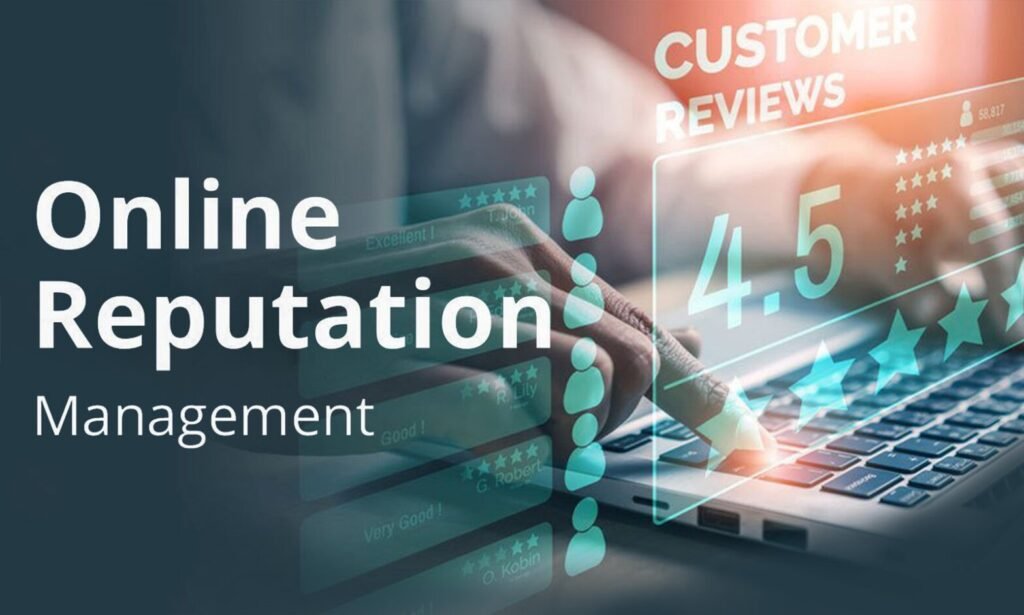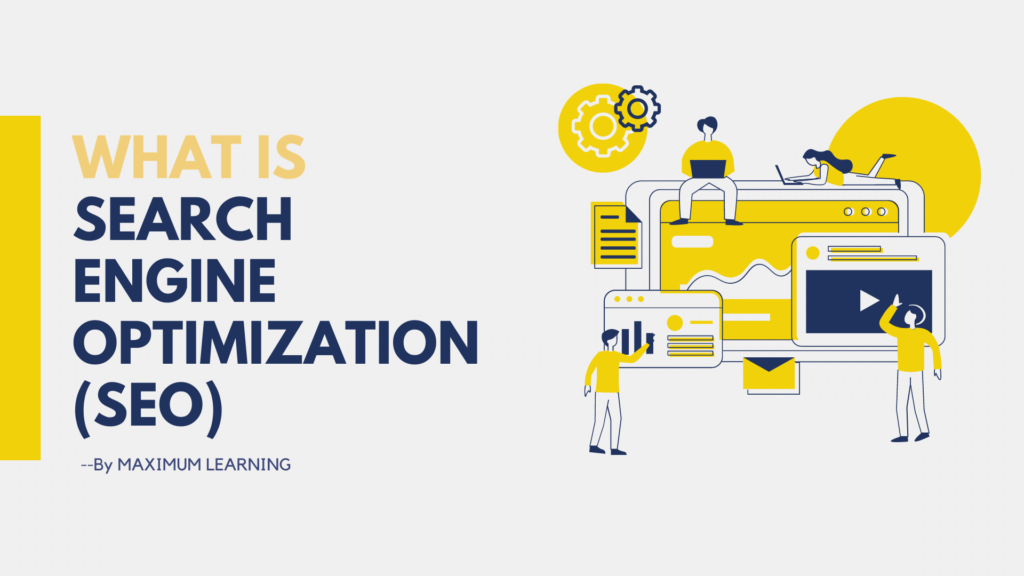Whether you’re an individual professional, a small business, or a large corporation, managing and enhancing your online presence is paramount for success. A positive online reputation not only builds trust but also influences customer decisions. Here, we’ll explore actionable tips to boost and maintain a stellar online reputation.
What is Online Reputation Management?
Online Reputation Management (ORM) stands as a pivotal and strategic discipline, dedicated to meticulously curating and influencing the public perception surrounding individuals, businesses, or brands across the vast expanse of the internet. In an era marked by the swift dissemination of information and the instantaneous accessibility of online content, the cultivation of a positive online reputation emerges as an indispensable asset. This digital image serves as the linchpin for building trust within the online community, a cornerstone for attracting discerning customers, and an essential element in sustaining a resilient and influential digital presence.
The imperative for a positive online reputation is underscored by its multifaceted role in shaping the perceptions of the target audience. Trust, a currency of immense value in the virtual realm, is intricately linked to the online reputation of an entity. Customers, clients, and stakeholders often base their decisions on the perceived credibility and reliability conveyed by an individual, business, or brand’s online presence. Therefore, the proactive management of this digital image becomes not only a means of safeguarding against potential reputational risks but also an avenue for seizing opportunities and maximizing the impact of positive associations.
In a world where the lines between the physical and digital spheres continue to blur, the success of endeavors, be they personal or professional, is increasingly entwined with the perceptions propagated in the online space. ORM, as a strategic approach, involves a dynamic interplay of various elements. It encompasses the continuous monitoring of online mentions, sentiments, and reviews, providing a real-time pulse on the digital landscape. Analysis and evaluation of this data become paramount, aiding in deciphering the nuances of online sentiments and enabling strategic responses to both positive and negative feedback.
Content management is a central tenet of ORM, involving the creation and optimization of content that aligns with the desired online image. This content, spanning blog posts, articles, social media updates, and multimedia, serves as a proactive mechanism for shaping the narrative and influencing the discourse surrounding an entity. Review management, an integral facet, entails actively engaging with reviews on platforms like Google, Yelp, or industry-specific forums. This interaction not only demonstrates responsiveness but also affords an opportunity to showcase a commitment to customer satisfaction.
Social media management, an influential aspect of ORM, involves active participation on social platforms, fostering engagement, and responding promptly to comments. As social media increasingly becomes a primary channel for communication, leveraging its potential for building and managing reputation is paramount. Additionally, ORM incorporates Search Engine Optimization (SEO) strategies to ensure that positive and relevant content ranks prominently in search engine results, contributing to a positive online narrative.
The importance of ORM extends beyond mere reputation preservation; it encompasses a proactive approach to building, nurturing, and refining the online image. A well-executed ORM strategy not only mitigates potential reputational risks but also capitalizes on the digital landscape to foster brand loyalty, attract new customers, and position individuals, businesses, or brands as influential entities within their respective domains.
Key Components of Online Reputation Management:
Monitoring:
ORM begins with vigilant monitoring of online mentions, reviews, and sentiments. This involves tracking social media channels, review sites, forums, and news articles to stay informed about what is being said about a person, company, or brand.
Analysis and Evaluation:
A thorough analysis of the gathered data helps in understanding the sentiment behind online mentions. Positive sentiments contribute to a favorable reputation, while negative sentiments require careful management and strategic response.
Content Management:
The creation and optimization of positive and accurate content are crucial in shaping a favorable online image. This involves the development of quality content through blog posts, articles, social media updates, and multimedia that align with the desired image.
Review Management:
Actively managing reviews on platforms like Google, Yelp, or industry-specific review sites is integral to ORM. Addressing customer feedback, both positive and negative, demonstrates responsiveness and a commitment to customer satisfaction.
Social Media Management:
Social media platforms are powerful tools for building and maintaining online reputation. Effective ORM involves regular engagement, sharing valuable content, responding to comments, and addressing any issues that may arise on these platforms.
Search Engine Optimization (SEO):
A strong online reputation is often closely tied to search engine rankings. ORM incorporates SEO strategies to ensure that positive and relevant content ranks high in search engine results, pushing down negative or irrelevant content.
Why is Reputation Management Important For Your Business?
Trust Building:
A positive online reputation fosters trust among potential clients, customers, partners, and stakeholders. Trust is a critical factor in decision-making processes, and a positive online presence contributes significantly to building and maintaining it.
Brand Credibility:
Credibility is directly linked to reputation. A credible brand is more likely to attract customers and retain them over the long term. ORM ensures that accurate and positive information is readily available when individuals search for a brand or person online.
Customer Acquisition and Retention:
A positive online image is a key factor in acquiring new customers. Equally important is the retention of existing customers. Addressing concerns, providing excellent customer service, and showcasing positive experiences contribute to customer loyalty.
Crisis Management:
ORM is not only about maintaining a positive reputation but also about effectively handling crises. Whether it’s negative press, social media backlash, or other challenges, a well-executed ORM strategy helps in managing and mitigating the impact of crises.
How To Do Online Reputation Management?
1. Google Yourself Regularly: Stay Informed
Start by searching your name or your brand on Google periodically. Regular self-assessment allows you to be aware of what others might find when they search for you. Look beyond the first page of results, as potential clients and employers often delve deeper into search results.
2. Actively Monitor Social Media: Be Present and Engaged
Maintain an active presence on relevant social media platforms. Regularly monitor mentions, comments, and reviews. Respond promptly to both positive and negative feedback, demonstrating your commitment to customer satisfaction. Engaging with your audience builds trust and shows that you value their opinions.
3. Showcase Your Expertise: Content is King
Position yourself or your business as an authority in your field by consistently producing high-quality content. Share blog posts, articles, videos, and infographics that showcase your expertise. This not only adds value to your audience but also establishes your credibility, contributing positively to your online reputation.
4. Encourage and Respond to Reviews: Leverage Positive Feedback
Actively seek and encourage satisfied customers, clients, or colleagues to leave positive reviews on platforms relevant to your industry. Respond graciously to both positive and negative reviews. Addressing concerns publicly demonstrates your commitment to customer satisfaction and can turn negative experiences into positive ones.
5. Optimize Your LinkedIn Profile: Your Professional Persona
LinkedIn is a powerful tool for professionals and businesses. Ensure your LinkedIn profile is comprehensive, up-to-date, and reflects your achievements and expertise. Join relevant groups, participate in discussions, and connect with professionals in your industry to expand your network and enhance your online reputation.
6. Cultivate a Positive Online Presence: Mind Your Digital Footprint
Be mindful of what you share online, both personally and professionally. Avoid controversial topics or offensive language. Consistently present yourself in a positive light, as potential employers, clients, or collaborators often scrutinize online behavior before making decisions.
7. Utilize Online Tools: Take Advantage of Technology
Leverage online tools and services that can help you monitor and manage your online reputation. Google Alerts, Brandwatch, and Social Mention are examples of tools that can notify you of mentions, allowing you to address issues promptly.
8. Address Negative Content Strategically: Turn Challenges into Opportunities
If negative content surfaces, address it promptly and professionally. Attempt to resolve issues privately, and publicly acknowledge feedback. Turning a negative experience into a positive one through transparent communication can demonstrate your commitment to improvement.
9. Invest in Online Security: Protect Your Digital Presence
Safeguard your online identity by investing in cybersecurity measures. Regularly update passwords, enable two-factor authentication, and be cautious about sharing sensitive information online. A secure online presence contributes to a positive reputation.
10. Seek Professional Guidance: Reputation Management Experts
Consider enlisting the help of reputation management professionals if your online presence faces significant challenges. These experts can offer strategies to repair and enhance your reputation, providing valuable insights and support.
Nurturing Your Digital Image
Your online reputation is an ongoing project that requires attention and effort. By implementing these tips, you can actively shape a positive digital image that aligns with your personal or professional goals. Remember, a well-managed online reputation is an invaluable asset in today’s interconnected world.




